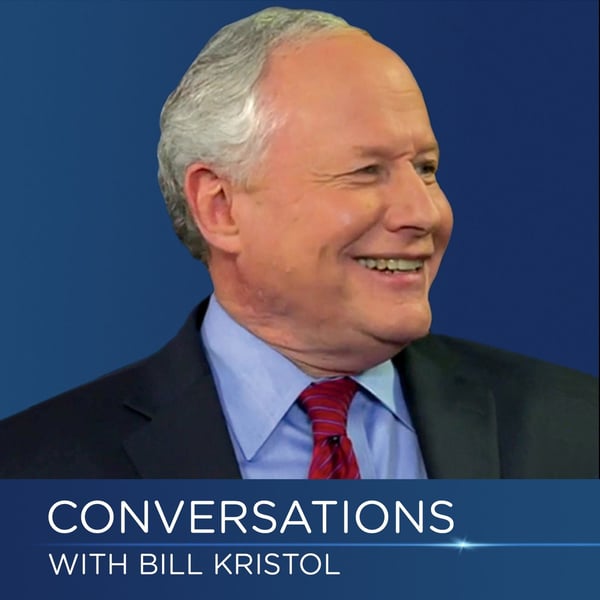Paul Cantor: Shakespeare and Comedy
Conversations with Bill Kristol
Conversations with Bill Kristol
4.7 • 1.7K Ratings
🗓️ 2 June 2021
⏱️ 84 minutes
🧾️ Download transcript
Summary
Transcript
Click on a timestamp to play from that location
| 0:00.0 | Welcome back to Conversations. I'm Bill Crystal. Very pleased to be joined again by my friend Paul |
| 0:21.2 | Cantor, Professor of Literature at the University of Virginia. He has been a guest on many conversations, |
| 0:27.5 | ranging from topics from Shakespeare to popular culture to fiction to the Western in movies and |
| 0:34.2 | novels. But today we're going to talk about Shakespeare and comedy. Before we get into that, |
| 0:40.2 | I should say that you can watch a whole series of lectures by Paul, excellent lectures on Shakespeare, |
| 0:46.4 | at the Shakespeare and Politics page of great thinkers, TheGreatThinkers.org. So go to TheGreatThinkers.org, |
| 0:54.0 | click on Shakespeare and Politics and you get a very well curated page with Paul's lectures and |
| 0:59.7 | actually the earlier conversations you've had on Shakespeare, etc. But enough of the promotion, |
| 1:04.4 | let's get to the topic. So, Paul, thanks for being with me. |
| 1:08.7 | Pleasure being here. And now it's virtual. |
| 1:12.0 | Yeah, I know. Next time. Next time in reality. So Shakespeare and Comedy. So you wanted to talk |
| 1:20.8 | about comedy. It's most people Shakespeare, the tragedies come to mind first and they're more |
| 1:26.0 | serious and heavy and weighty and all that. I assume you have a slightly different view if you |
| 1:30.8 | want to discuss comedy here. Yeah, I think comedy doesn't get enough attention. And I recognize |
| 1:38.1 | that Shakespeare's tragedy is a very great place. I'd say that King Lear and Hamlet are |
| 1:43.4 | to have raised work. But I think we tend to underestimate the comedies because we don't understand |
| 1:49.8 | paradoxically their seriousness. And there's a way in which the comedies take up subjects seriously |
| 2:00.3 | in a way that maybe the tragedies don't. And so I've always felt that the comedies tend to be neglected |
| 2:09.4 | or discussed in superficial ways. It's well known that you can't explain numerous. There's |
| 2:15.2 | nothing worse than trying to analyze a joke. And so I think it's pretty clear that the scholarship |
| 2:21.3 | on the tragedies is more interesting than that on the comedies. But I do think that there's something |
| 2:28.4 | to be learned from the comedies that we can't learn from the tragedies. And here I take my clue |
... |
Please login to see the full transcript.
Disclaimer: The podcast and artwork embedded on this page are from Conversations with Bill Kristol, and are the property of its owner and not affiliated with or endorsed by Tapesearch.
Generated transcripts are the property of Conversations with Bill Kristol and are distributed freely under the Fair Use doctrine. Transcripts generated by Tapesearch are not guaranteed to be accurate.
Copyright © Tapesearch 2025.

